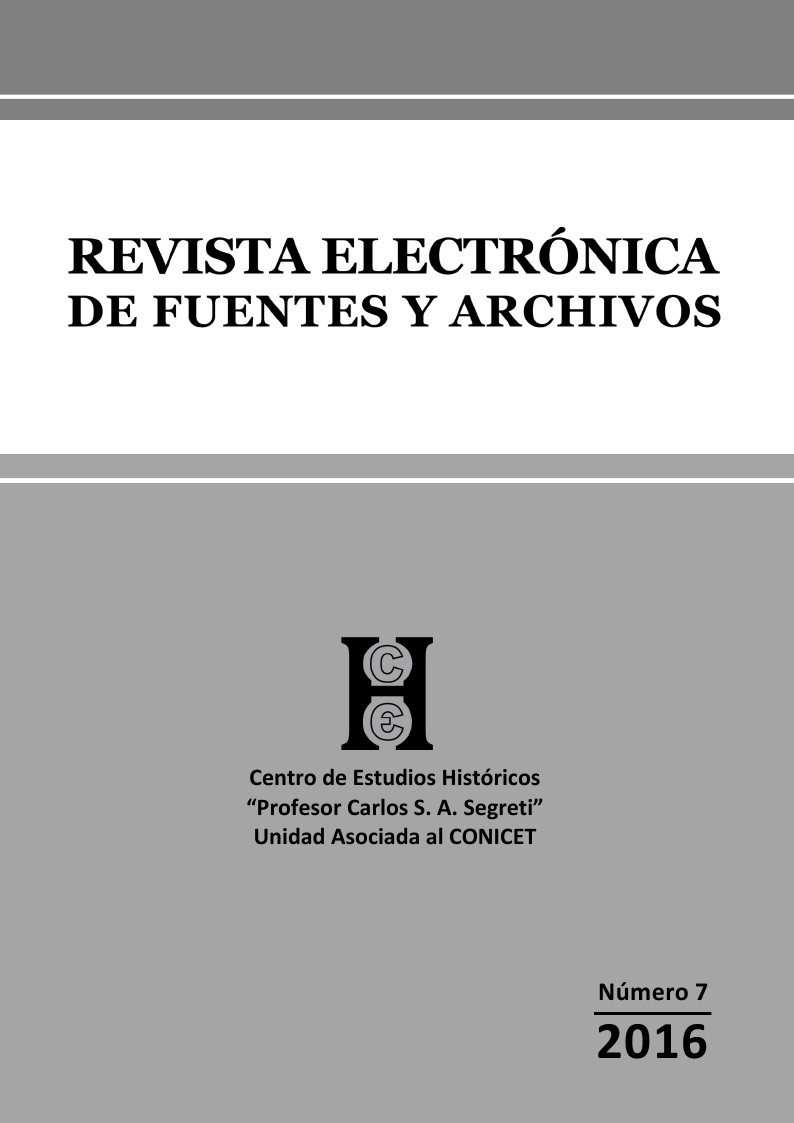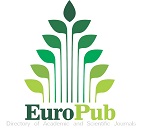Traces of a Subject in the Letters to Perón: Between Sources and interpretation of First Peronism
Keywords:
letters, peronism, subjectivity, discourseAbstract
Our work ventures on a broad documentary corpus consisting of letters and communications sent to Juan and Eva Peron during the first two Peronist governments (1946-1955) in order to delineate the contours of the popular political subjectivity that emerged and constituted during those years of government. In the article, we first aim to reflect on the theoretical and methodological challenges such written source poses to the historical-political analysis, and then move to delineate the different analytical modes or dimensions we consider co-involved in the interpretive approach of epistolary practice. We put forward then, three main dimensions of analysis: a first one that focuses on the letter as a weave of articulated meanings, a second dimension that focuses on the political gesture of the letter, and a third and final one addressing the letter as evocation of the near and everyday context of the subject.
Downloads
References
ACHA Omar, “Cartas de amor en la Argentina peronista: construcciones epistolares del sí mismo, del sentimiento y del lazo político populista”, Nuevo Mundo Mundos Nuevos, núm. 8, 2007, disponible en: http://nuevomundo.revues.org/12272.
ACHA Omar y Nicolás QUIROGA, El hecho maldito: Conversaciones para otra historia del peronismo, Buenos Aires, Prohistoria, 2012.
ACHA Omar, Familia, amor y política durante la década peronista (Buenos Aires, 1945-1955), Universidad de Buenos Aires y École de Hautes Études en Sciences Sociales, Tesis Doctoral, 2005.
AUSTIN John, Cómo hacer cosas con palabras, Buenos Aires, Paidós, 1962.
ACHA Omar, “Sociedad civil y sociedad política durante el primer peronismo”, Desarrollo Económico, vol. 44, núm. 174, 2004, pp. 199-230.
BARRY Carolina, “El Partido Peronista Femenino: la gestación política y legal”, Nuevo Mundo Mundos Nuevos, 2007, disponible en: https://nuevomundo.revues.org/12382.
BHABHA Homi, El lugar de la cultura. Buenos Aires: Manantial, 2002.
BUTLER Judith, Cuerpos que importan: Sobre los límites materiales y discursivos del ‘sexo’, Buenos Aires, Paidós, 2008.
CANTIN Lucie, “Practices of the letter: writing a space for the real”, Umbr(a), 2010, pp. 11-34.
CANTÓN Darío, Elecciones y partidos políticos en la Argentina, Buenos Aires, Siglo XXI, 1973.
DAUPHIN Cécile, “La correspondencia como objeto histórico: un trabajo sobre los límites”, Políticas de la Memoria. Anuario de investigación e información del CeDInCI, núm. 14, 2013-2014, pp. 9-12.
DEL CAMPO Hugo, Sindicalismo y Peronismo. Los comienzos de un vínculo perdurable, Buenos Aires, Siglo XXI, 2012.
ELENA Eduardo, “What the People Want. State Planning and Political Participation in Peronist Argentina”, Journal of Latin American Studies, núm. 37, 2005, pp. 81-108.
FERNANDEZ CORDERO Laura, “Lecturas sobre la subjetividad”, Políticas de la Memoria. Anuario de investigación e información del CeDInCI, núm. 14, 2013-2014, pp. 23-30.
FITZPATRICK Sheila, “Supplicants and Citizens: Public Letter-Writing in Soviet Russia in the 1930s”, Slavic Review, vol. 55, núm. 1, 1996, pp. 78-105.
GARZÓN ROGÉ Mariana, “El primer peronismo desde el interior del país: reflexiones a partir de una experiencia de investigación”, Estudios Sociales, núm. 46, 2014, pp. 279-296.
GENÉ Marcela, Un mundo feliz. Imágenes de los trabajadores en el primer peronismo 1946-1955, Buenos Aires, FCE, 2005.
GINZBURG Carlo, Mitos, emblemas, indicios. Morfología e historia, Barcelona, Gedisa, 2008, pp. 185-239.
GROPPO Alejandro, Los dos príncipes: Juan D. Perón y Getulio Vargas. Un estudio comparado del populismo latinoamericano, Villa María, Eduvim, 2009.
GUY Donna, Creating Charismatic Bonds in Argentina: Letters to Juan and Eva Perón, Albuquerque, University of New Mexico Press, 2016.
HALL Stuart, “Who needs ‘identity’?”, Paul DU GAY, Jessica EVANS and Peter REDMAN, (eds.), Identity: a reader, Londres, IDE: Sage Publications Inc., 2000, pp. 15-30.
HOBSBAWM Eric, “Sobre la historia desde abajo”, Eric HOBSBAWM, Sobre la historia, Barcelona, Crítica, 2002.
JAMES Daniel, “Los orígenes del peronismo y la tarea del historiador”, Archivos de historia del movimiento obrero y la izquierda, año 2, núm. 3, 2013, pp. 131-147.
JAMES Daniel, Resistencia e Integración. El peronismo y la clase trabajadora argentina. 1946-1976. Buenos Aires, Siglo XXI, 1990.
JELIN Elizabeth, “Don’t Cry for Me, Argentina, or the Globalization of Peronism”, Contemporary Sociology, núm. 26, 1997, p. 302.
LACAN Jacques, El Seminario 11. Los cuatro conceptos fundamentales del psicoanálisis, Buenos Aires, Paidós, 2006.
LACLAU Ernesto, La Razón Populista, Buenos Aires, FCE, 2005.
LACLAU Ernesto y Chantal MOUFFE, Hegemonía y estrategia socialista, Buenos Aires, FCE, 2004.
LEVITSKY Steven, “Institutionalization and Peronism. The Concept, the case and the case for unpacking the concept”, Party Politics, núm. 4, 1998, pp. 77-92.
PASTORIZA Elisa y Marcelo PEDETTA, “‘Lo que el pueblo necesita’. Turismo social y Peronismo. Argentina, 1945-1955”, Études Caribéennes, núm. 13-14, 2009, disponible en: https://etudescaribeennes.revues.org/3767.
PLOTKIN Mariano, Mañana es San Perón. Propaganda, rituales políticos y educación en el Régimen Peronista (1946-1955), Buenos Aires, Ariel, 1993.
RANCIÈRE Jacques, El desacuerdo. Política y filosofía, Buenos Aires, Nueva Visión, 2010.
RANCIÈRE Jacques, La noche de los proletarios. Archivos del sueño obrero, Buenos Aires, Tinta Limón, 2010.
SCHIAVI Marcos, El poder sindical en la argentina peronista (1946-1955), Buenos Aires, Imago Mundi, 2013.
STRAUGHN Jeremy, “Taking the State at Its Word: The Arts of Consentful Contention in the German Democratic Republic”, The American Journal of Sociology, vol. 110, núm. 6, 2005, pp. 1598-1650.
TASSO Alberto, Ferrocarril, quebracho y alfalfa. Un ciclo de agricultura capitalista en Santiago del Estero, 1870-1940, Córdoba, Alción, 2007.
TASSO Alberto, “La sequía de 1937 en Santiago del Estero. Antecedentes y consecuencias de un acontecimiento ambiental”, Trabajo y Sociedad, núm. 17, 2011, pp. 17-39.
TORRE Juan C., La Vieja Guardia Sindical y Perón. Sobre los orígenes del Peronismo, Buenos Aires, Sudamericana, 1990.
Downloads
Published
Issue
Section
License
Copyright (c) 2016 Mercedes Barros, Virginia Morales, Juan Manuel Reynares, Mercedes Vargas

This work is licensed under a Creative Commons Attribution-NonCommercial-ShareAlike 4.0 International License.
Se puede compartir (copiar y redistribuir el material en cualquier medio o formato) y adaptar (remezclar, transformar y construir a partir del material), siempre que: a) se cite la autoría y la fuente original de su publicación (revista, editorial y URL de la obra); b) no se use con fines comerciales; c) la distribución de las obras derivadas se haga con una licencia igual a la que regula la obra original.




















